Ghana
Ghana is caught up in a campaign frenzy as its prepares for the December 7 presidential and parliamentary elections.
The electoral season though has not been without some drama as the Electoral Commission in the West African country dismissed 13 presidential contenders last month.
Following a Supreme Court ruling though, seven of them have been cleared to vie for the highest office of the land. One of them is Ivor Kobina Greenstreet who is contesting the presidency on the ticket of one of Ghana’s oldest parties, the Convention People’s Party (CPP) founded by the country’s first president Dr. Kwame Nkrumah.
Ivor Greenstreet is a unique contender not because he is a novice to politics nor because he is unqualified. His case is particularly exceptional because he is the first physically challenged person to be competing for the presidency in Ghana.
Greenstreet was not born with his current disability. In fact the lawyer and publisher was confined to a wheelchair after a motor accident in 1997 which nearly took his life.
But that has not kept him out of politics. He was a parliamentary candidate for the CPP in 1996 and 2004 elections. Having failed to make it to the legislature on both occasions, he ran for General Secretary of the party, a position he won and occupied between 2007 and 2011.
In January this year, Greenstreet caused a major upset during the party’s presidential primaries. He polled some 1,288 votes, representing 64.2 percent of votes cast by delegates to beat Samia Nkrumah, daughter of the party’s founder, and then party Chairperson, as well as two other top party officials.
Ivor’s success has been hailed by many and has given hope to many physically challenged persons in Ghana. His quest to become the president of Ghana though goes beyond giving hope to a section of the Ghanaian population.
“We have a foundation of beliefs which are built on three pillars. First is self-determination, the second is social justice, the third is pan-Africanism,” he told Africanews correspondent Peter Quao Adattor.
“It means that we believe in the CPP, that we should be earning more from our resources as a nation because Ghana is a wealthy country. Oil, gold, gas, cocoa, timber, bauxite, diamond, fertile lands, access to strong human beings. We are not to be poor at all with these resources that God has bequeathed this our great nation,” Greenstreet told Africanews.
Debates have been raging in the build up to the December elections over the management of Ghana’s oil revenue as the country is said to have lost some six billion dollars in its first 5 years as an oil producer.
Ivor Greenstreet believes “it is the laws that we have been passing and the nature of the policies” put in place by successive governments since the return to constitutional rule in 1992, “which have meant and brought us to the situation we find ourselves in”.
“So one particular policy that clearly disassociates us (CPP) from the two larger parties, the NDC and the NPP, which have been governing this nation in recent times, is dealing with how we would get the revenue from the oil,” Greenstreet argues.
“They believe and have recently quietly passed a bill in parliament, the petroleum law, which uses royalties and taxes, as a system of gaining revenue from our oil. We all know how poor we have been as a nation in collecting taxes and we also know how good multi-nationals have been in invading taxes. So we don’t believe as CPP in the royalty-taxes system or the Ghana hybrid system,” he said.
Instead, the CPP flagbearer wants to “repeal that law, or amend or review it and bring into place a far more progressive system that is called the production-sharing formula”.
His proposed formula he says is already being used by other oil-producing countries such as Nigeria, Libya and Angola.
“It is rather like somebody owning a piece of land, and decides to let someone come to grow corn on that land. They share in the proceed from that corn. So what we would have achieved if we had used this system called the production sharing formula, is far greater revenue for this great nation,” Greenstreet said of his proposal.
Going by his production sharing formula, Ghana would have earned 9 billion dollars he said between 2010 and 2015, the first five years of oil production instead of the “3 billion dollars under the current taxes system”.
With an electorate rather keen on voting for personalities over ideas, Ivor Greenstreet has his job cut out for him if he is to win over the heart and mind of the average Ghanaian voter.
He will be going up against the incumbent president, John Mahama who is seeking a second term in office, main opposition leader Nana Akufo-Addo who is making his third attempt at the presidency as well as Dr. Papa Kwesi Nduom, a former flagbearer of the CPP and now leading his own party, the Progressive People’s Party, also making his third bid to become president of Ghana among others.
Peter Quao Adattor, Africanews correspondent




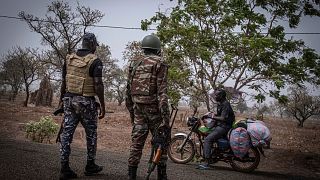
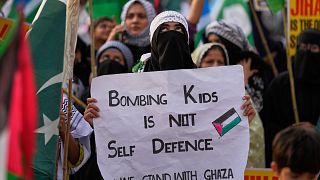
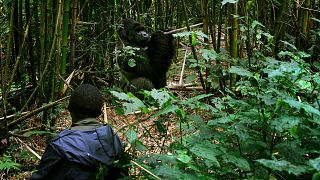
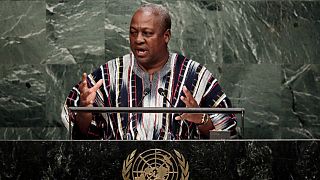
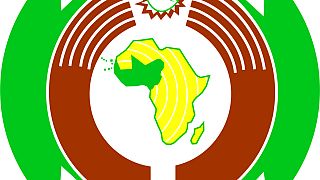
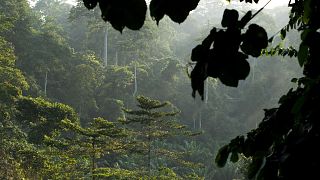
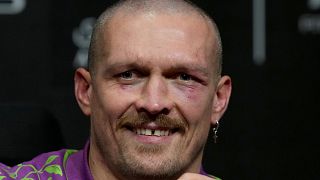
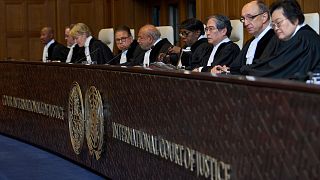

Go to video
Ghana moderators sue Meta over harm from reviewing extreme content
01:30
Ineligible to stand, Gbagbo enters the Ivorian election by other means
Go to video
Ghanaian Catholics gather for requiem mass in Accra in honour of Pope Francis
01:15
Gabon’s constitutional court confirms Nguema’s landslide presidential victory
Go to video
Ghana: Tensions rise as chief justice Torkornoo suspended
Go to video
Gabonese react to Brice Oligui Nguema's landslide presidential election election